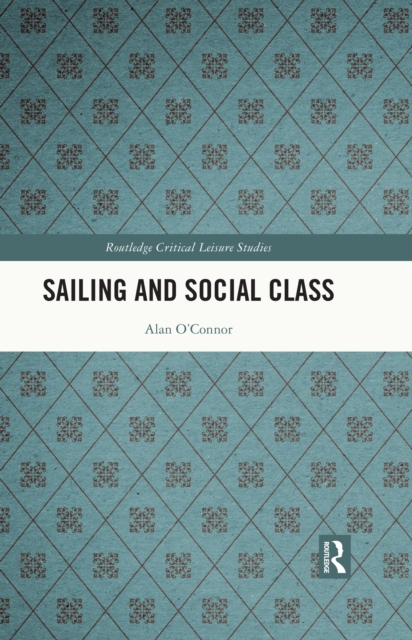
Sailing and Social Class EPUB
by Alan (Trent University, Canada) O'Connor
Part of the Routledge Critical Leisure Studies series
EPUB
Description
This book explores the sociology of sailing and yachting.
Drawing on original research, and employing a theoretical framework based on the work of Pierre Bourdieu, the book argues that sailing is, still, an upper-middle-class activity that has much to tell us about the wider sociology of leisure and sport.
The book examines the historical foundations of blue-water sailing as established by naval and colonial shipping, to trace the roots of contemporary sailing and yachting culture.
It also examines archives of sailing narratives and cruising guides, as well as the children’s books of Arthur Ransome, arguing that this archival material offers a social rather than a psychological interpretation of the ‘bodily investment’ in sailing.
The book uses Bourdieu’s concepts of ‘illusio’ – an investment of time, emotion and body into a worthwhile activity – and ‘habitus’, or lifeworld, alongside contemporary data sets, to examine the yacht club as a social institution, including why many boats never go out on the water, the relationship between yacht clubs and the state, and social issues as manifested in yacht clubs, such as sexism, racism and homophobia.
Offering a vigorous sociological critique of yachting and sailing, this book is fascinating reading for anybody with an interest in the sociology of leisure and sport, subcultures, social theory, or social issues in wider society.
Information
-
Download - Immediately Available
- Format:EPUB
- Pages:168 pages, 9 Tables, black and white; 7 Halftones, black and white; 7 Illustrations, black and white
- Publisher:Taylor & Francis Ltd
- Publication Date:23/04/2024
- Category:
- ISBN:9781040017869
Information
-
Download - Immediately Available
- Format:EPUB
- Pages:168 pages, 9 Tables, black and white; 7 Halftones, black and white; 7 Illustrations, black and white
- Publisher:Taylor & Francis Ltd
- Publication Date:23/04/2024
- Category:
- ISBN:9781040017869










